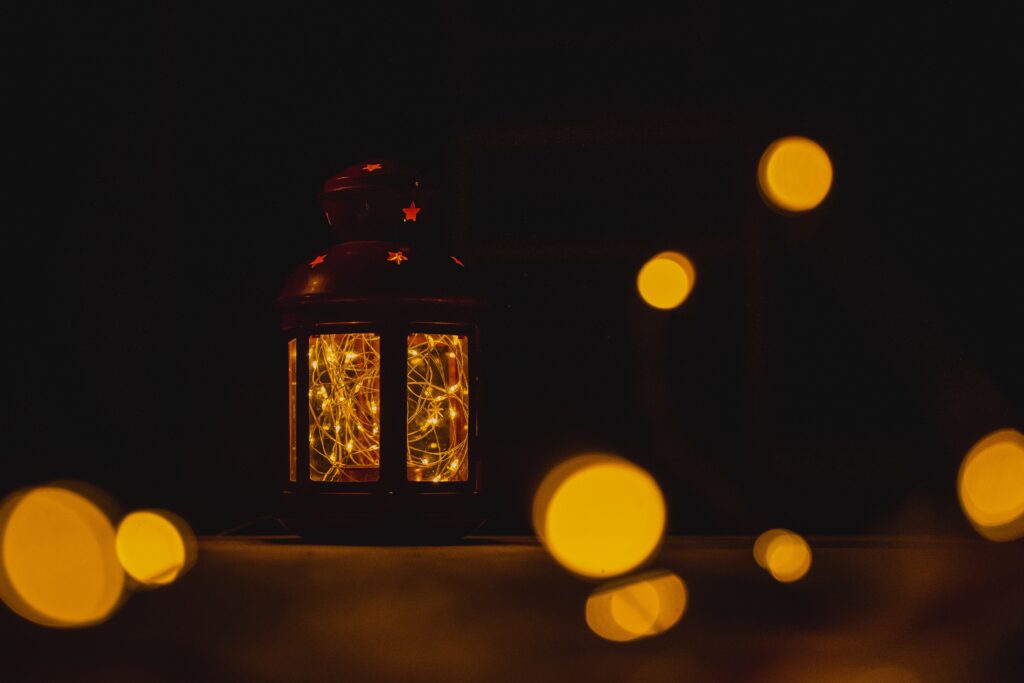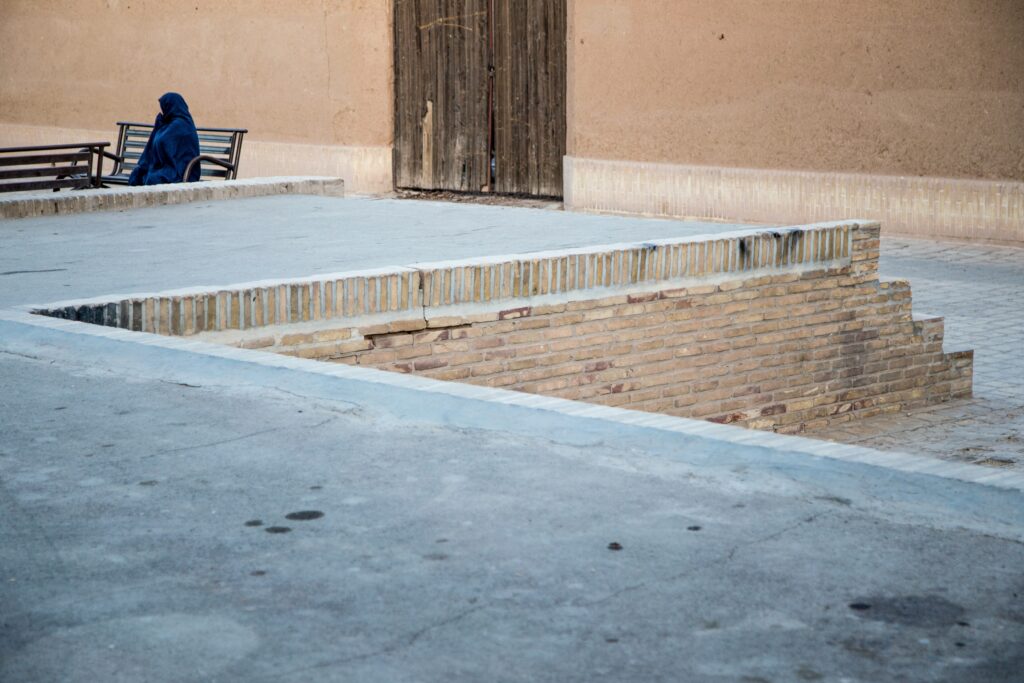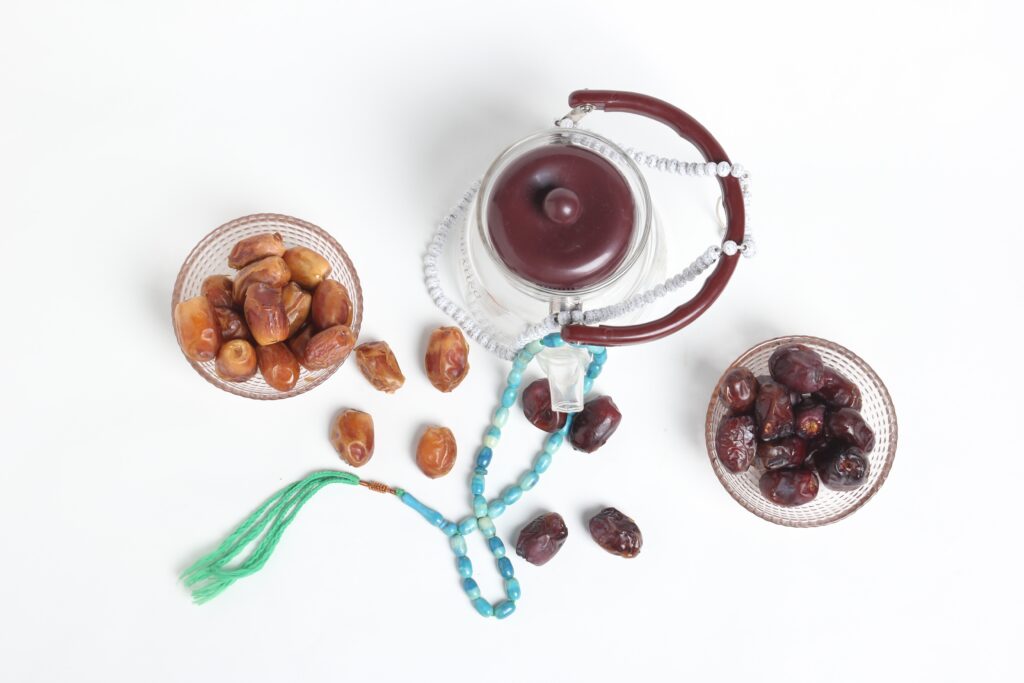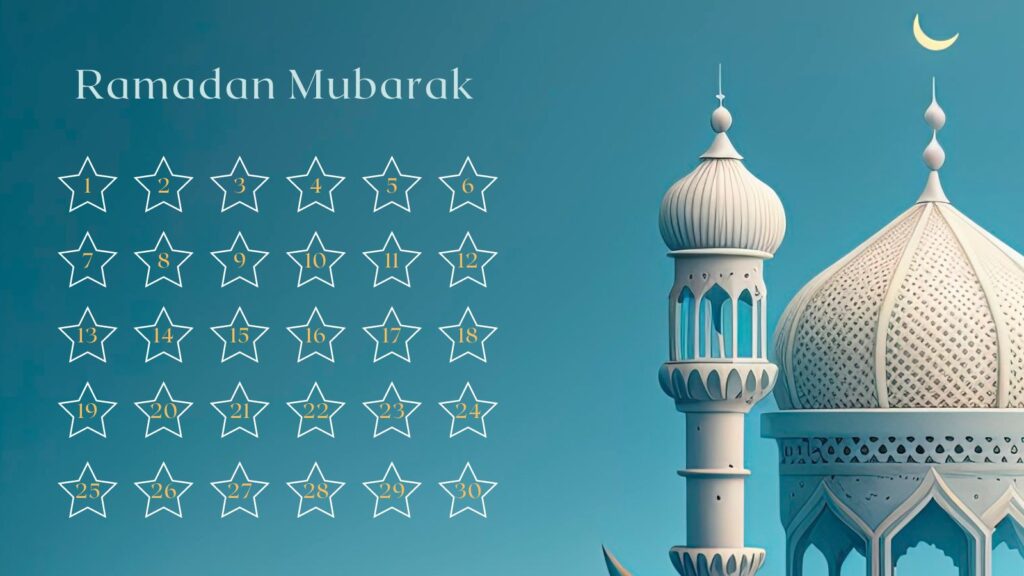Guidance regarding basic Islamic issues that Hazrat Amirul Momineen, Khalifatul Masih Vaa, has given on various occasions in his written correspondence and during MTA programmes is being published officially below for everyone’s benefit.

Ruqyah and status of the so-called Du‘a Kumayl
A lady from Kashmir wrote to Hazrat Amirul Momineen, Khalifatul Masih Vaa, stating that [in the Shi‘i tradition] a supplication often recited over incurable patients by way of ruqyah is as follows:
يَا مَنِ اسْمُہُ دَواءٌ وَذِکْرُہُ شِفاءٌ
[“O He Whose name is a remedy, and Whose remembrance is a cure.”]
She asked about the source of this supplication and its authenticity. Huzoor-e-Anwaraa, in his letter dated 9 April 2022, provided the following response to her query:
“To the best of my knowledge, there is not any supplication [proven from authentic ahadith] that corresponds to what you have written in your letter. However, in the ahadith, it is mentioned that the Holy Prophetsa himself as well as his Companions, the Sahabahra, would recite Surah al-Fatihah, the mu‘awwizatayn (i.e., Surah al-Falaq and Surah an-Nas), and some other supplications while performing ruqyah over ailments such as fever, various diseases, and bites from snakes and scorpions, among other things.
“For instance, a hadith recounts an episode where a group of Companions embarked on a journey and halted near a tribe. They asked the tribe for some food, but the people of the tribe refused to entertain them. Subsequently, the tribe’s chief was bitten by a snake or a scorpion, and despite all attempts, he did not recover. Someone suggested consulting the travellers, as they might know of a cure. Upon enquiry, a companion from among the Companions replied that he indeed knew of a method of ruqyah but, due to the tribe’s refusal to provide any hospitality, he would not administer it. Following the tribe’s pledge to give a flock of sheep [as remuneration] to the Companions, the companion recited Surah al-Fatihah over the tribe’s chief, who recovered so completely due to the blessing of Surah al-Fatihah that it seemed as though he had never been bitten. The Companions took the sheep from the tribe. One of them proposed to divide the sheep among them. Still, the companion who had performed ruqyah suggested that they should not do so until they had presented the matter to the Holy Prophetsa and learned of his command. When they went to the Holy Prophetsa and related the entire event, he asked, ‘How did you know that Surah al-Fatihah could be used as ruqyah? You did exactly right. Distribute the sheep among yourselves, and set aside a portion for me.’ Saying this, the Holy Prophetsa smiled. (Sahih al-Bukhari, Kitab at-tibb, Bab an-nafthi fi r-ruqyah)
“Hazrat Aishara narrates that the Holy Prophetsa would recite the following supplication while performing ruqyah:
أَذْهِبْ الْبَاسَ رَبَّ النَّاسِ بِيَدِكَ الشّفَاءُ لَا كَاشِفَ لَهُ إِلَّا أَنْتَ
“‘O Lord of the people! Remove the trouble, for the cure is in Your Hands, and there is none except You, who can remove it [the disease] .’ (Sahih Muslim, Kitab as-salam, Bab istihbabi ruqyati l-marid)
“Similarly, we learn from the ahadith that the Holy Prophetsa would also blow lightly while performing ruqyah. (Sunan Ibn Majah, Kitab at-tibb, Bab an-nafthi fi r-ruqyati)
“This exact practice is also found in the lives of the Promised Messiahas and his Companions. As such, Hazrat Mufti Muhammad Sadiqra narrates:
“‘Once, this humble one travelled from Lahore to Qadian along with a few other members of the Jamaat from Lahore. The late Sufi Ahmad Din Sahib requested that I make a request on his behalf and ask the Promised Messiahas to perform ruqyah over his chest. As Hazrat Sahibas was passing through the alleyway before entering the interior of the house, I stepped forward to introduce Sufi Sahib and convey his request. Huzooras performed ruqyah by reciting something, (and then blew over) Sufi Sahib’s chest and proceeded to go inside.’ (Hazrat Mufti Muhammad Sadiq, Zikr-e-Habib, […], p. 137)
“Similarly, Hazrat Pir Sirajul Haqq Nu‘manira recounts:
“‘There was an instance when I travelled from Sarsawa to the noble hamlet of Qadian to be at the service of the Promised Messiahas. Our leader and guide, Hazrat Noor-ud-Deen, Khalifatul Masih Ira, was also present. He was sitting there after having offered the morning prayer and the Promised Messiahas was also present. Hazrat Khalifatul Masih Ira asked, ‘Pir Sahib! We have observed many pirs performing rituals and charms. Do you also recall any particular ritual that, upon witnessing, we too might be convinced of its efficacy?’ I responded by saying, ‘Yes, I do remember one’. He said, ‘Show us.’ I requested, ‘Please, wait for the appropriate time, then I will show you.’ The Promised Messiahas remarked, ‘Sahibzadah Sahib must remember them; these rituals have been passed down from his elders.’ After about two hours, a man suffering from pleurisy—which meant he was in severe spinal pain—came in. I said, ‘Please, observe as I perform a ritual on him.’ Hazrat Khalifatul Masih Ira replied, ‘Yes, perform the ritual.’ The Promised Messiahas also said, ‘Yes, perform the ritual.’ I performed the ruqyah on that person and God Almighty completely relieved him of his pain and granted him healing. Once he was relieved, Hazrat Khalifatul Masih Ira commented, ‘This may be mesmerism.’ At that time, I had neither heard of mesmerism nor known what it was. The Promised Messiahas asked, ‘Sahibzadah Sahib! What did you recite?’ I replied, ‘Hazrat! (May Allah’s peace be upon Muhammadsa and upon you), I recited al-Fatihah.’ (Tazkira-tul-Mahdi, 1914, Zia-ul-Islam Press, Qadian, p. 186)
“Thus, the practice of ruqyah is proven by the Holy Prophetas, the Promised Messiahas and their noble Companions. In this practice, God Almighty, out of His sheer grace, bestows healing upon the afflicted due to the blessings of the recited Quranic verses, pure invocations, and prayers of the noble individuals.”

I‘tikaf without fasting
Someone from Germany asked Hazrat Amirul Momineen, Khalifatul Masih Vaa, whether performing i‘tikaf during Ramadan without fasting is considered an innovation. Furthermore, he asked if there were any traditions or examples from the Companions of the Holy Prophetsa regarding performing i‘tikaf without fasting. Huzoor-e-Anwaraa, in his letter dated 10 May 2022, provided the following answer to this question:
“From the sunnah of the Holy Prophetsa, it is evident that he performed i‘tikaf during Ramadan only while fasting. That is why Hazrat Aishara stated:
لَا اعْتِكَافَ إِلَّا بِصَوْمٍ وَلَا اعْتِكَافَ إِلَّا فِي مَسْجِدٍ جَامِعٍ
“‘[…] There is no i‘tikaf without fasting, and there is no i‘tikaf except in a congregational mosque.’ (Sunan Abu Dawud, Kitab as-sawm, Bab al-mu‘takifi ya‘udu l-marid).
“Hence, regarding the masnun i‘tikaf [i.e., one according to the general practice of the Holy Prophetsa], the Companions of the Holy Prophetsa and scholars of jurisprudence are in agreement that it necessitates fasting. The perpetually observed sunnah of the Holy Prophetsa was also to observe i‘tikaf in the mosque during the last ten days of Ramadan. (Sahih Muslim, Kitab al-i‘tikaf, Bab i‘tikafi l‘ashri l’awakhiri min ramadan).
“As for observing i‘tikaf outside of Ramadan or doing so due to a vowed commitment [nazr], such i‘tikaf can be undertaken without fasting. This i‘tikaf can last for a few days or just a few hours. Hence, it is narrated from Hazrat Umarra that he said to the Holy Prophetsa, ‘I had vowed during the days of Ignorance [al-jahiliyyah] that I would observe i‘tikaf for a night in the Sacred Mosque. When I mentioned this to the Holy Prophetsa, he instructed me to fulfil my vow.’ (Sunan at-Tirmidhi, Kitab an-nuzuri wa l-’ayman, Bab ma ja’a fi wafa’i n-nazr).
“In conclusion, the masnun i‘tikaf during Ramadan can only be observed with fasting during the last ten days of Ramadan in a mosque. However, i‘tikaf outside of Ramadan may be observed without fasting and for a variable duration.”

Voluntary fasting
A student from Jamia Ahmadiyya Canada wrote to Hazrat Amirul Momineen, Khalifatul Masih Vaa, asking, “What is the wisdom behind voluntary fasting on Mondays and Thursdays? Can supererogatory fasts be observed on other days as well?” Huzoor-e-Anwaraa, in his letter dated 9 April 2022, provided the following reply to this question:
“Various reasons for observing supererogatory fasts on Mondays and Thursdays have been stated in the ahadith. As such, the Holy Prophetsa said, ‘On Mondays and Thursdays, the deeds [of mankind] are presented [before Allah the Exalted], and I wish that my deeds be presented while I am fasting.’ (Sunan at-Tirmidhi, Kitab as-sawm, Bab ma ja’a fi sawmi yawmi l-ithnayni wa l-khamis)
“Similarly, in another hadith, the Holy Prophetsa said, ‘The gates of Paradise are opened on Mondays and Thursdays, and every person who does not associate anything with Allah the Exalted is forgiven.’ (Sunan at-Tirmidhi, Kitab al-birri wa s-silah, Bab ma ja’a fi l-mutahajirayn)
“In yet another hadith, when asked about fasting on Mondays, the Holy Prophetsa replied that he was born on this day and it was on this day as well that he started receiving revelation. (Sahih Muslim, Kitab as-siyam, Bab istihbabi siyami thalathati ayyamin min kulli shahrin wa sawmi yawmi ‘arafata wa ‘ashura’a wa l-ithnayni wa l-khamis)
“Fasting on Mondays and Thursdays was a common practice of the Holy Prophetsa. (Sunan an-Nasa’i, Kitab as-siyam, Bab sawmi n-nabiyyi(sa) bi ’abi huwa wa ummi wa dhikru ikhtilafi n-naqilina li l-khabari fi dhalik)
“Likewise, the Holy Prophetsa regularly fasted on Ayyam al-Beed [lit. ‘The White Days’], namely the 13th, 14th, and 15th of each lunar month. (Ibid.)
“Furthermore, the Holy Prophetsa emphasised the merit of fasting on the Day of ‘Arafah (9th of Dhul-Hijjah) and the Day of ‘Ashura’ (10th of Muharram). (Sahih Muslim, Kitab as-siyam, Bab istihbabi siyami thalathati ayyamin min kulli shahrin wa sawmi yawmi ‘arafata wa ‘ashura’a wa l-ithnayni wa l-khamis) However, those present at Hajj are prohibited from fasting on the Day of ‘Arafah. (Sunan ibn Majah, Kitab as-siyam, Bab siyami yawmi ‘arafah)
“Thus, apart from the days of both Eids and the Days of Tashreeq (i.e., the 11th, 12th, and 13th of Dhul-Hijjah), which are days of celebration, eating and drinking for Muslims (Sunan at-Tirmidhi, Kitab as-sawm, Bab ma ja’a fi karahiyati s-sawmi fi ’ayyami t-tashriq), one can observe voluntary fasts on any day. However, singling out Fridays for fasting voluntarily is not permissible. (Sunan at-Tirmidhi, Kitab as-sawm, Bab ma ja’a fi karahiyati s-sawmi yawmi l-jumu‘ati wahdah) Furthermore, a person who is on hajj and has taken advantage of performing ‘umrah along with hajj, but does not have the ability to offer a sacrifice, will fast three days during the days of hajj. (Sahih al-Bukhari, Kitab as-sawm, Bab siyami ’ayyami t-tashriq)
“Comprehensive guidance of the Holy Prophetsa regarding voluntary fasts is found in the following hadith:
“‘Hazrat Abu Qatadah al-Ansarira reported, ‘Allah’s Messengersa was asked about perpetual fasting [sawmu d-dahr], whereupon he replied, ‘Such a person neither fasted nor did he break it’, [i.e., he did not like it…]. He was then asked about fasting for two days and breaking for one day. He replied, ‘And who has strength enough to do it?’ He was then asked about fasting for a day and breaking for two days, whereupon he said, ‘May Allah bestow upon us strength to do so.’ He was then asked about fasting for a day and breaking on the other, whereupon he said, ‘That is the fasting of my brother Davidas.’ He was then asked about fasting on Mondays, whereupon he said, ‘It was the day on which I was born, on which I was commissioned with prophethood and revelation [of the Holy Quran] was sent to me.’ He [further] said, ‘Three days’ of fasting every month and the whole of Ramadan every year is a perpetual fast.’ He was asked about fasting on the Day of ‘Arafah [9 Dhu’I-Hijja], whereupon he said, ‘It expiates the sins of the preceding year and the coming year.’ He was then asked about fasting on the day of ‘Ashura’ [10 Muharram], whereupon he said, ‘It expiates the sins of the preceding year.’ (Sahih Muslim, Kitab as-siyam, Bab istihbabi siyami thalathati ayyamin min kulli shahrin wa sawmi yawmi ‘arafata wa ‘ashura’a wa l-ithnayni wa l-khamis)”
House mortgages

A lady from Germany said to Hazrat Amirul Momineen, Khalifatul Masih Vaa that it is forbidden to give or take interest. She further said that in the Western world, when someone wants to buy a house, they have to pay interest on it. She asked if a Muslim was permitted to buy a home in these countries [on interest]. Huzoor-e-Anwar, in his letter dated 10 May 2022, provided the following answer to this question:
“Houses bought in the Western world through mortgages typically involve a loan acquired from a bank or financial institution. Until the loan is repaid, the property is in fact owned by the bank or financial institution. The bank or financial institution also charges an additional sum on this loan, which they attribute to the devaluation of money.
“Since not everyone in these countries can easily afford to buy a house for their residence, they are left with two options. They either have to live in a rented house their entire lives, in which case the lifelong paid rent provides them with no benefit other than residing in the house because, despite paying a substantial amount in rent, the house never becomes their property. Alternatively, they are forced by circumstances to utilise the facility of a mortgage to buy a house for their residence. The mortgage repayments they have to make are almost the same as the rent they would be paying. However, the advantage of a mortgage is that after repaying the instalments, the house becomes their property.
“Therefore, buying a house through a mortgage is a matter of necessity and compulsion [iztirar], from which one may only benefit to the extent of buying a house for personal residence. However, using this method of a mortgage to continuously buy properties for business purposes is by no means correct, and the Jamaat does not encourage this at all; rather, it prohibits it.”
Ramadan and Eid countdown calendars

The esteemed nazim of Dar-ul-Ifta sought guidance from Hazrat Amirul Momineen, Khalifatul Masih Vaa upon a query he had received regarding the practice of decorating homes and creating Ramadan calendars to count down to the day of Eid, similar to the custom of Christmas. Huzoor-e-Anwaraa, in his letter dated 10 May 2022, provided the following answer to this question:
“The essential matter here is that in this regard too, we ought to consider the directive of the Holy Prophetsa, i.e., إِنَّمَا الْأَعْمَالُ بِالنّيّاتِ [‘Deeds are judged by motives.’ (Sahih al-Bukhari, Kitab Bad’i l-wahy, Bab kayfa kana bad’u l-wahy ila rasulillah, Hadith 1)]. If the intention in decorating houses during Ramadan and putting up Ramadan calendars is to direct the attention of the household and children towards the significance of Ramadan; to cultivate an environment within the home that encourages family members, particularly children, towards the importance of various kinds of worship and supplications of Ramadan; so that they may engage in prayers and supplications at suhoor [pre-dawn meal] and iftar [meal at sunset] times, influenced by this atmosphere; and so that they can embrace each day of Ramadan with enthusiasm and fervour, benefiting from the blessings bestowed during this time, then there does not seem to be any issue with this action with such intentions.
“However, if the sole purpose is ostentation, and all these efforts are merely for show and display, and each day passes with the thought of, ‘Well, that’s good, so many days have passed, we’re relieved of them, the remaining days will soon pass too, and then we’ll celebrate Eid’, and on Eid, instead of seeking genuine happiness, one’s concern is merely superficial joys, then decorating houses and putting up Ramadan calendars with this intention is unequivocally not permissible.
“In conclusion, if this activity brings about a pure transformation within the family, and it generates attention towards the blessings of Ramadan, providing them with the opportunity to benefit from them, then such decoration and the putting up of such calendars is permissible. However, if the objective is merely to show off and to treat Ramadan as a burden, then such decorations and calendars would be impermissible and would be considered an innovation in religious matters.”
(Compiled by Zaheer Ahmad Khan, Head of Records Department, Private Secretariat, London. Translated by The Weekly Al Hakam.)

